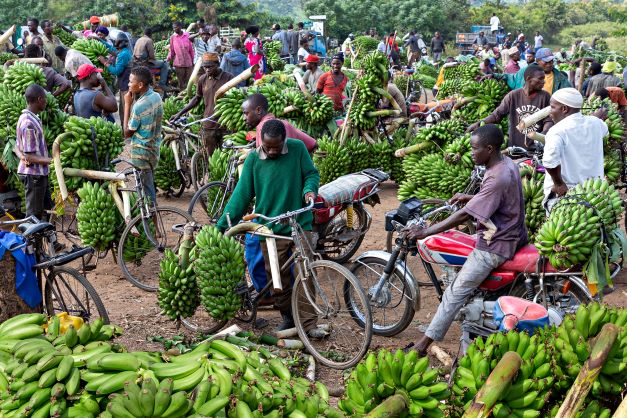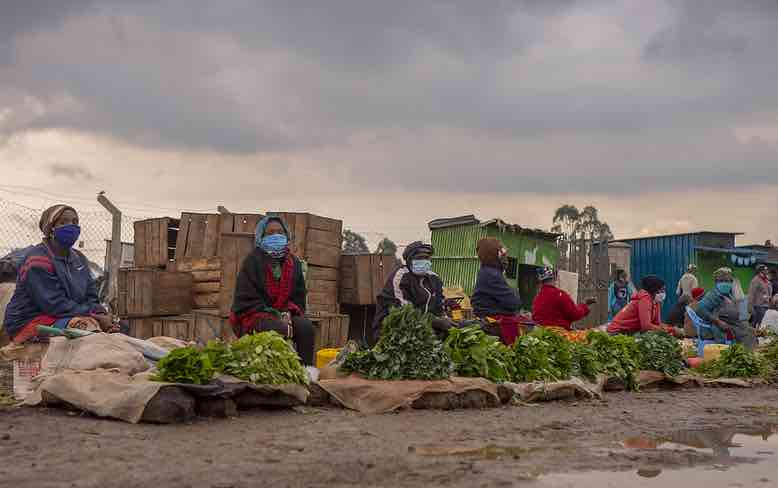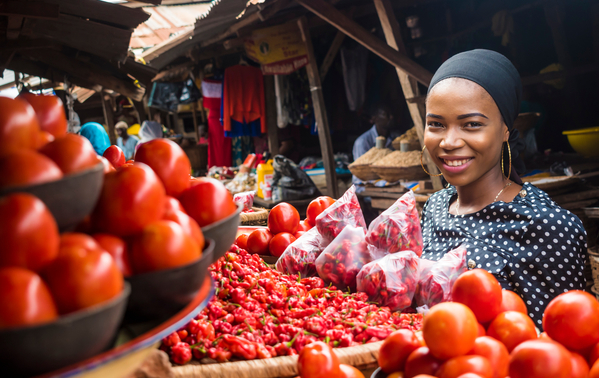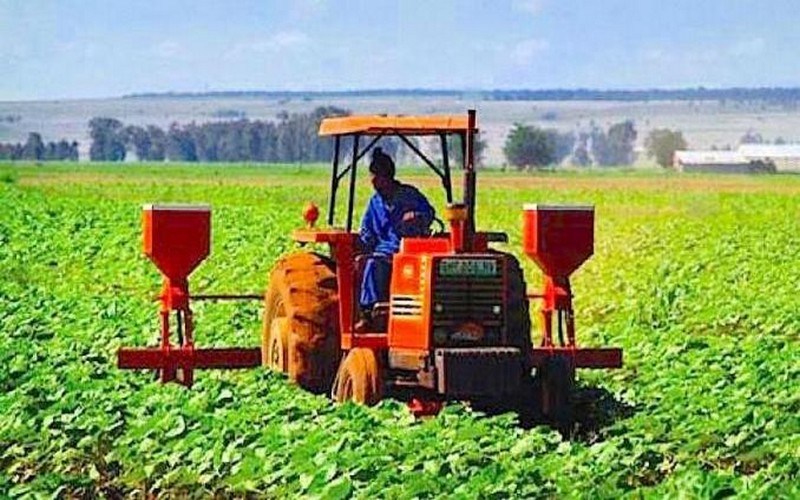In recent years, there has been a drive to innovate and transform Africa’s agricultural value chains in order to meet the food security, peace and prosperity targets set out by the Malabo Declaration and the Sustainable Development Goals.
A key element of African countries’ agricultural transformation strategies involves integrating technologies along the value chain to improve productivity and efficiency. But with 20 million young Africans entering the workforce each year there is a concern that agricultural machinery and new technologies are destroying jobs.
 To ensure that productive employment opportunities are created to absorb Africa’s growing youth demographic, the Malabo Montpellier Panel’s ‘Mechanized: Transforming Africa’s Agriculture Value Chains’ report explains how agricultural mechanization can and must be employment enhancing, rather than labor replacing. On 16th April 2019, members of the Malabo Montpellier Panel met with key decision-makers in the agricultural sector to discuss their experiences of mechanization in different value chains and to examine some of the primary lessons from the report, which underlines that the successful mechanization of African smallholder agriculture must become a priority on countries’ development agendas.
To ensure that productive employment opportunities are created to absorb Africa’s growing youth demographic, the Malabo Montpellier Panel’s ‘Mechanized: Transforming Africa’s Agriculture Value Chains’ report explains how agricultural mechanization can and must be employment enhancing, rather than labor replacing. On 16th April 2019, members of the Malabo Montpellier Panel met with key decision-makers in the agricultural sector to discuss their experiences of mechanization in different value chains and to examine some of the primary lessons from the report, which underlines that the successful mechanization of African smallholder agriculture must become a priority on countries’ development agendas.
Among the speakers, Jean-Michel Voisard, Senior Market Systems Advisor at RTI International and former Program Lead of the Feed the Future Senegal Naatal Mbay project, drew on his experience in successfully integrating mechanical tools and technologies into the rice value chain in the Senegal River Valley. Targeting stakeholders at different levels along the value chain – from smallholder cooperatives and individual entrepreneurs to large millers and local government authorities – the Naatal Mbay project took a bottom-up approach to mechanization, with the aim to improve the livelihoods of farming communities in the valley. As a result of the intervention, more than 100,000 small grain producers have been able to increase their self-sufficiency.
Entrepreneurship Opportunities
Using imported Chinese milling machines, maintained by local mechanics, founder of Diongoma Riz De La Vallée, Mrs Gueye – a beneficiary of the Naatal Mbay Feed the Future project – is able to process 5,000-6,000 tons of rice per year (20-30 tons per day). She employs 14 full-time members of staff to carry out these operations, in addition to 10 women for manual pre-cleaning activities. Mechanization has enabled Mrs Gueye to expand her production and create much-needed jobs. She is able to use the rice she processes as collateral to borrow funds, in order to pay farmers on the delivery of their rice. Once the rice is processed and sold she repays the banks to clear her borrowing. Mrs Gueye’s ability to repay her loans on time has allowed her to increase her borrowing year-on-year and to continue to expand the mill’s operations.
Another entrepreneur supported by the Feed the Future project has also realized the value of agricultural mechanization for business expansion and job creation. In 2014, the rice farmer located near the Mauritanian border started with just one tractor. Today, he owns five combine harvesters and several tractors, worth US$1.4 million. To pay for the machines he rents them to farmers in exchange for 20 percent of their harvest. As a result, he receives 14,000 tons of rice from farmers each year, in addition to his own harvest. This high turnover has enabled him to employ 15-20 people on a regular basis as drivers and mechanics. With US$500,000 in investment, the farmer plans to build a mill with a laser system for cleaning, as well as a storage warehouse by 2020, thereby creating more jobs for the local community.
Agribusiness expansion
In Ross-Béthio, Naatal Mbay has facilitated l’Union des Femmes Productrices (UFP), a women’s cooperative, to acquire milling machines for rice processing and encouraged them to try new rice varieties. Consequently, the 28 cooperative members’ yields have increased from 4-5 tons per hectare to 7-8 tons per hectare, helping to boost their incomes. Additionally, some of the women have been trained as accountants and data managers to support the cooperative’s transition into a sustainable agribusiness and help them access the capital that they need to expand. With these new business skills and the increased income from the milling machines the cooperative is likely to be able to employ new members of staff in the coming years.
Established in the Senegal River Valley in 1953, another family-owned rice mill has also benefitted from the project’s promotion of mechanization. The mill uses machines to separate husks, bran and rice. The husks are made into pallets as a source of energy for a local cement factory, while the bran is used as animal feed. The company’s 18 full-time employees and 20 part-time staff support the processing of 15,000 tons of rice per year and maintenance of the machines. Beyond providing jobs for these employees, the mill’s increased processing power, as a result of the machines, has benefitted the livelihoods of its local farmer suppliers. Even with approximately 100 farmer groups (each with 5-55 members) supplying rice, the mill still struggles to source enough rice to function at maximum capacity.
As Mr Voisard told participants of the Malabo Montpellier Panel’s Policy Seminar: Transforming Africa’s agriculture value chains through mechanization on 16th April, “The transformation of factories and all of these new technologies taking shape in the Senegal river valley, will – in the long run – create jobs.” The evidence from Feed the Future’s Naatal Mbay project speaks for itself, indeed portraying that mechanization can lead to an increase in employment opportunities rather than a decrease, when policies are designed in a way to spur employment generation. Armed with the findings of the Malabo Montpellier’s Mechanized report, African decision-makers and the private sector need to make targeted efforts and interventions to promote mechanization in each segment of the value chain. To do this, they must work at developing socially sustainable mechanization pathways and increasing investments in the development of supportive infrastructure. Thus, allowing the potential of agriculture to drive growth and employment, particularly in rural economies. Read the original blog here.




